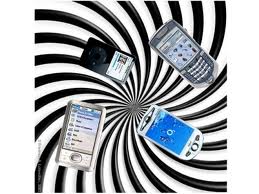digital device manifesto
The Consumer Electronics Show (CES) can be an intoxicating experience. Drinking in all the devices on the show floor, it’s easy to be dazzled by cool features, brilliant designs, and products you never even dreamed of. Speakers captivate your imagination as they describe bold visions and demo the newest products.
But amid all the hype, a sobering truth must be acknowledged: Too many people in the industry get so caught up in the technology of the digital devices that they forget about – or ignore — the people who use them.
With this in mind, I offer the following “Digital Device Manifesto” – a call to arms of sorts to get – and keep — the industry’s focus where it should be: the user.
Realize we’re the ones who are stupid. Bill Campbell, Apple’s CEO, exhorted his employees at Steve Jobs’ memorial service, saying, “When we make things that people can’t use, we think they’re stupid. But Steve Jobs said, ‘When we make things that people can’t use, we’re stupid.’” Our job is to make technology easy to use. It’s not the user’s job to figure it out. If we don’t make it easy to use, we’re foolish – or delusional – or both.
Ask what we can take out of the device. More features and capabilities tend to complicate the user experience. In one of the sessions of this year’s Fitness Tech Summit at CES 2012, an engineer enumerated the long list of features in his new product, explaining that his team asked themselves, “What else can we put into this device?” How much simpler and more elegant might it have been if they had remembered the adage, less is more.?!
Spend more time working on how to get people to use device. We stunt the potential of a new technology when we assume people will want to use it. A recent New York Times piece featured “the start-up whisperer,” Reid Hoffman. He’s observed, “Entrepreneurs spend too much time creating products and too little figuring out how to get people to use them.” Innovation isn’t only about generating ideas; it’s also about generating demand.
Care what people do with the data. Device makers think agnosticism toward services, software, and apps makes the appeal of their products more universal. In fact, one CES Digital Health Summit panelist boasted that he “didn’t care” what people did with the data that his device produces. But the reality is, device manufacturers become more valuable when they help people extract the value of the data by curating, integrating, and/or developing all aspects of the user experience.
Don’t talk down to people – but don’t set them up to fail either. We make people feel like dummies when we limit their options or prescribe the way they should use our products. But people also feel dumb when we don’t educate and equip them with the information and tools to make decisions on how best to use them. There’s a fine line between empowerment and abandonment.
related content:
- Digital Health & Fitness at CES 2012 – video recap
- Crossing the Digital Health and Fitness Chasm – published by CE Vision magazine
- Will 2012 Be “Like 1984?”
